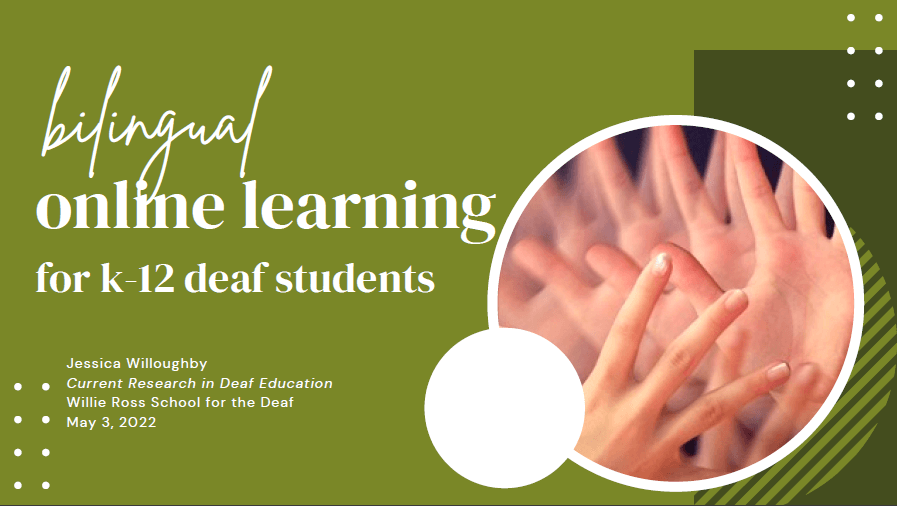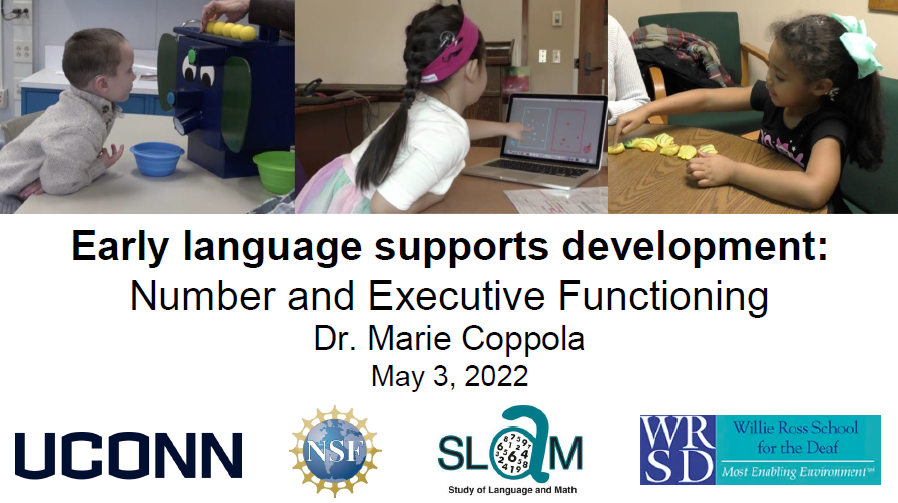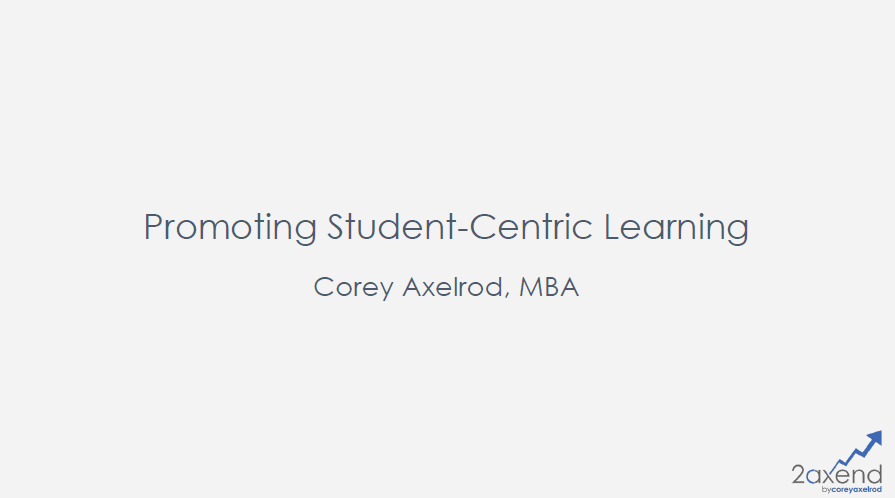Conference 2022
Current Research in Deaf Education
Willie Ross School for the Deaf hosted Current Research in Deaf Education on May 3, 2022 from 11:30 a.m. to 4:30 p.m. via Zoom and in person at the Sheraton Springfield Monarch Place Hotel in Springfield, MA. This was a conference for educators, special education directors, parents, school counselors, and school administrators designed to share information regarding current and emerging best practices in deaf education.
In addition to all of the wonderful speakers below, we featured a panel discussion and a Q&A session at the conclusion of our conference.
Click the Program button below to download a PDF of our conference program.
Conference Speakers
Jessy Willoughby—What does bilingual online learning mean for our deaf education community?
Presentation
Google found fewer than 10,000 search results when using the following keywords: bilingual, online, learning, and education. When keywords related to deaf education were added to the search, fewer than 10 results came up. That tells us how far we are in this new and unknown frontier of online education for our K-12 deaf and hard of hearing students. The workshop will begin with a discussion of bilingual instructional strategies our teachers have used in the past and how they adapted to these strategies online during the pandemic. Jessy will share her experience of transforming a learning management system bilingual-friendly for her deaf students by creating “chapters in ASL” and “ASL vocabulary” videos and using several online learning platforms as a part of her classroom activities.
Marie Coppola—Early language supports development: Number and Executive Functioning
Presentation
The Study of Language and Math based at the University of Connecticut has asked how we can support number development, math skills, and executive functioning in deaf and hard of hearing (DHH) children. Dr. Coppola will share recent research findings about the roles of language modality signed and spoken language) and the timing of children’s access to language on their development. In sum, signed language (in this case American Sign Language, or ASL) supported age-appropriate number knowledge and executive functioning in DHH children equally well as spoken language supports such development in typically hearing children. In general, the earlier children experience full access to the languages in their environment, the better their outcomes.
Corey Axelrod—Promoting Student-Centric Learning
Presentation
Cultivating a student-centric learning environment is paramount for long-term educational success. These environments help students develop communication and social skills, promote intrinsic motivation to learn, and, ultimately, help students transfer skills to the real world. During this workshop, we will discuss effective techniques and strategies for teachers, interpreters and related service personnel to use to promote student-centric learning with Deaf and hard of hearing students.
Registration
Registration for this conference has closed.
Sponsors
Without our sponsors, this event would not be possible. A big thank you to all of our sponsors.
- Sorenson VRS
- Dawn Sign Press
- Monson Savings Bank
- ZP Better Together, LLC
- Northern Essex Community College
- T-Mobile Accessibility




